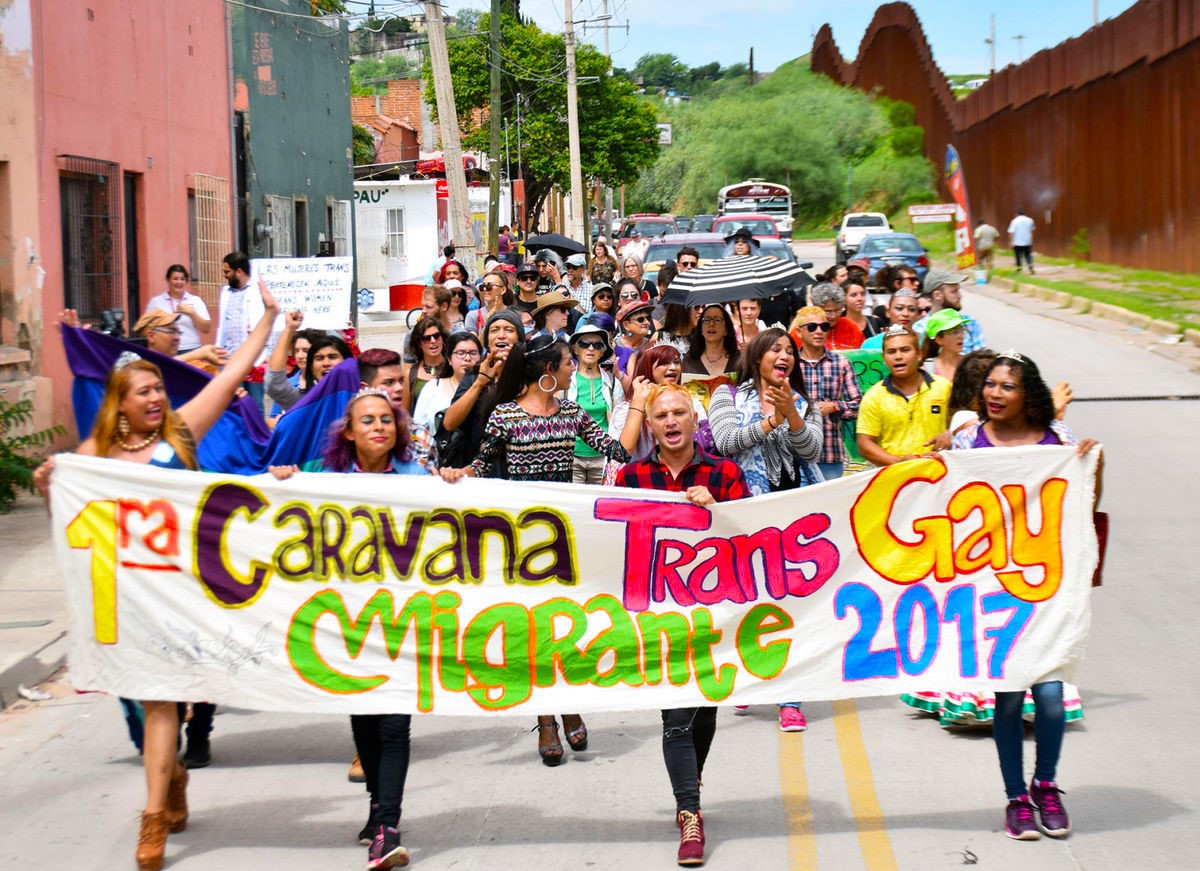The U.S. Government Should Honor Parole Requests of Gay Men Who Remain at Risk in ICE Custody
(Chaparral, New Mexico)– Late September, the last transgender Central American woman who arrived at the US-Mexico border over the summer seeking asylum as part of a caravan was granted parole and released from the Cibola County Correctional Center in Milan, New Mexico. The women and their attorneys now call on U.S. Immigration and Customs Enforcement (ICE) to exercise similar discretion and release three gay men who also were members of the caravan, and continue to face risk to their health and safety in custody at the Otero Processing Center in Chaparral, New Mexico.
The asylum seekers were part of the Rainbow 17 Caravan, a group of 11 transgender women and 6 gay men from Central America and Mexico who arrived at the border in Nogales, Arizona, on August 10, 2017, and requested asylum after experiencing extreme forms of violence in their home countries.
ICE’s decision to release the women abides by the government’s long-standing parole guidance favoring release for asylum seekers who are not flight risks nor pose threats to the community. But since President Trump took office, ICE has failed to grant parole to the vast majority of individuals who have been locked up after requesting asylum at the border or a port of entry, and decisions on parole requests vary greatly between different regions of the country.
“My experience being locked up in the detention center was awful,” said a translatina caravan member who was released last month. “Never in my wildest thoughts did I imagine the conditions would be that unbearable. I am very happy to be out and grateful for where I am in the process now and for the family I am staying with, who are making me feel welcome.”
The women, along with their advocates and lawyers from the National Immigrant Justice Center, Transgender Law Center, and Instituto Legal, remain extremely concerned about the gay men who still are detained. Those individuals have reported they are being harassed by jail guards and other detainees, have been denied medical treatment, and fear for their safety because of their sexual identity.
“The lack of oversight in this parole process is really unfair,” said Keren Zwick, associate director of litigation at the National Immigrant Justice Center. “If you ask for protection at the border, ICE can send you basically wherever it wants, and the decision as to where they send you can mean the difference between release and detention, as we are seeing in these cases. On the court side, when you have an LGBTQ-based claim, where you are detained also can make a difference between winning or losing your asylum case.”
“We are relieved that these brave women, who came to the U.S. seeking safety from persecution, have finally been released from immigration detention centers that we know are horrifically violent and abusive of transgender women,” said Flor Bermudez, legal director at Transgender Law Center. “Unfortunately, there is still a long road ahead for the men still in Otero and for the transgender women who have been released, as they fight deportation back to the countries where their lives have been threatened. They are not facing this journey alone, though, and we are committed to doing everything in our power to ensure they, and all transgender immigrants seeking safety from torture and abuse, remain safe and free.”
“New Mexico has a long history of welcoming asylum seekers,” said Joaquin Sanchez-Leal, director of programs for Instituto Legal, a non-profit legal organization based in Albuquerque. “Placing those who are fleeing violence because of their gender identity or sexual orientation behind bars, even though they are eligible for immediate release, goes against our long-held tradition. We are all watching and will continue working to ensure the remaining caravan members are released from detention.”
The freed caravan members still each have a long road ahead of them as they pursue their asylum cases. In the United States, asylum seekers must wait months or years for permission to work and for access to housing or food support. They also have no right to appointed attorneys, so are left to find legal counsel on their own. Advocates must continue to work to support the women and improve the system in a way that gives bona fide refugees a fighting chance to prevail on their applications for protection. The human rights violations inherent in the ICE detention system have gained increased attention in the past month in Washington, D.C. In early October, U.S. House Representatives Adam Smith (WA-09) and Pramila Jayapal (WA-07) introduced the Dignity for Detained Immigrants Act, which would hold ICE accountable to protect detained immigrants and ensure access to release for asylum seekers and other immigrants. Also this month, the U.S. Supreme Court heard re-argument in Jennings v. Rodriguez, which challenges ICE’s prolonged detention of immigrants fighting deportation.
“I cannot find the words to express how happy I am to be out of that horrific detention center,” said a translatina caravan member. “When I started my journey, I was very scared. I needed to flee the violence and transphobia in my country of origin, but had heard many stories of trans women who didn’t make it through the journey or were trapped for months in terrible detention centers. I know my release is not typical, and I thank God I have a great team fighting for my rights and safety. I feel like a new woman, secure and ready to take on the world.”

